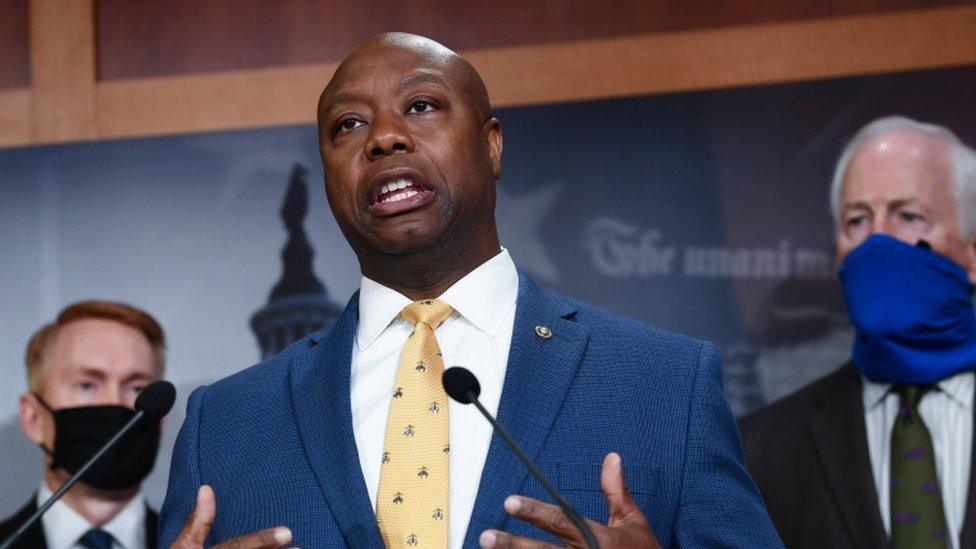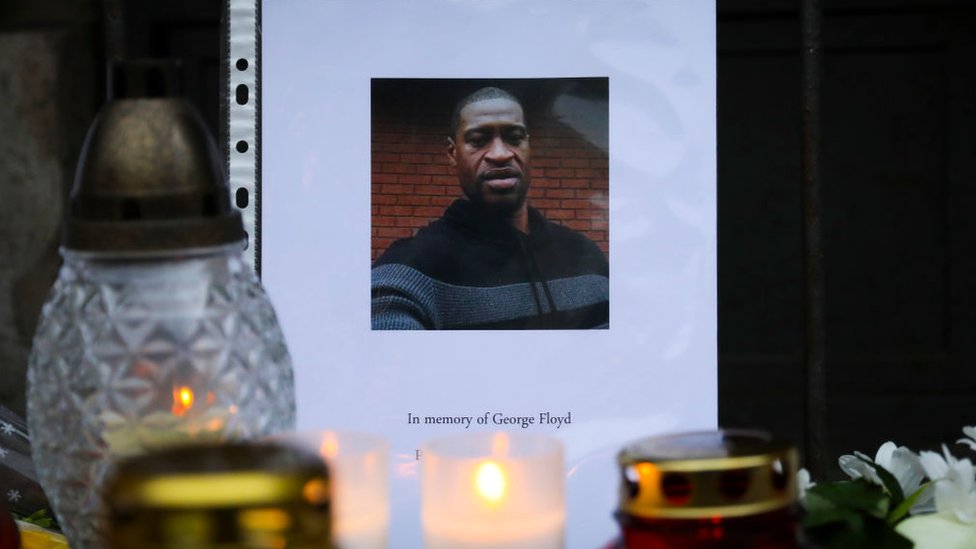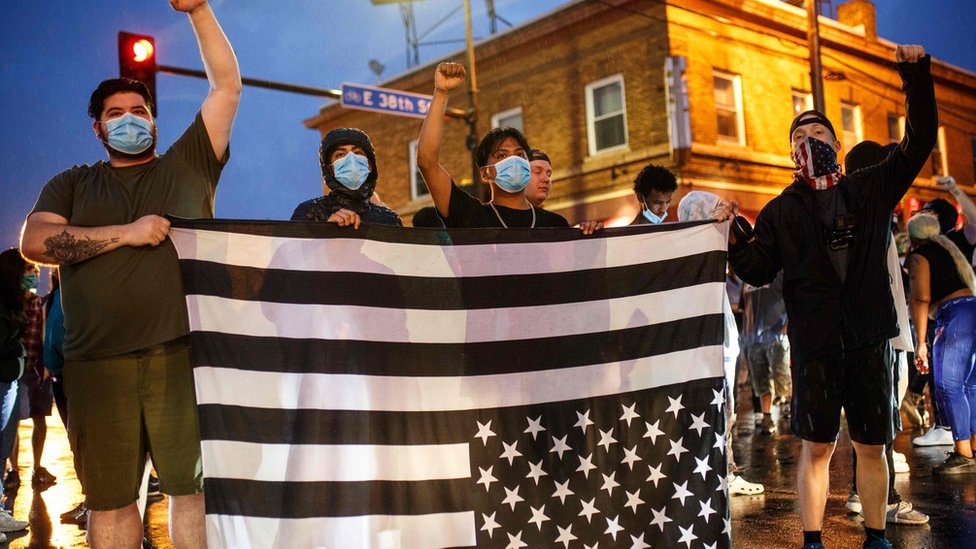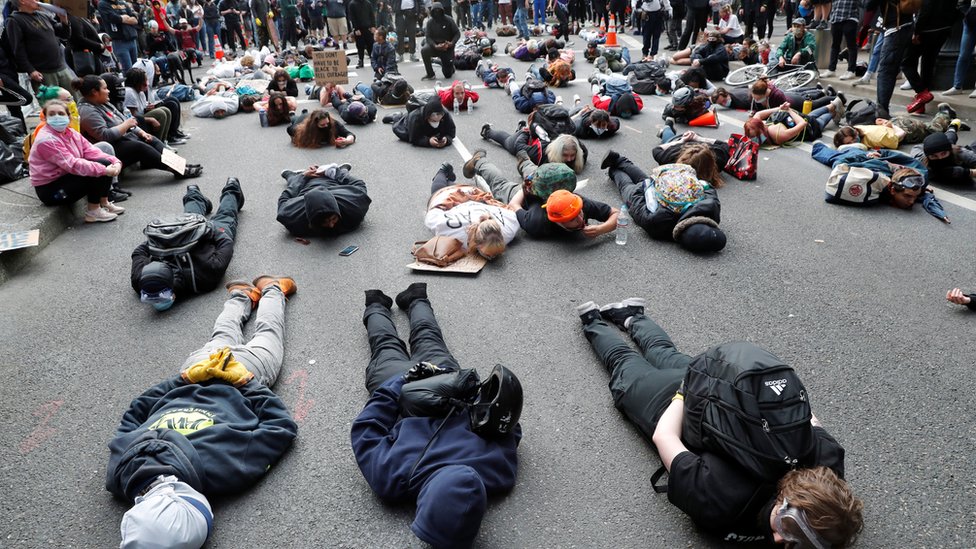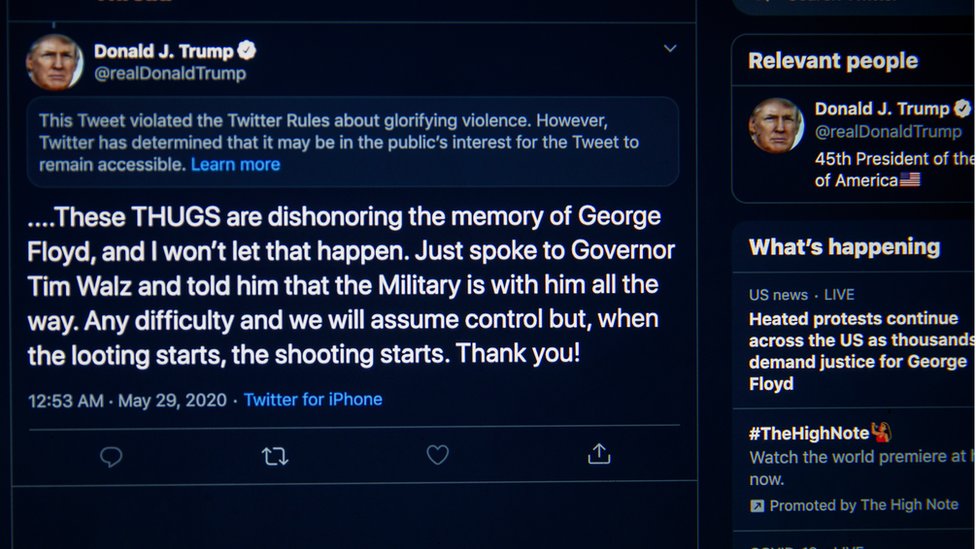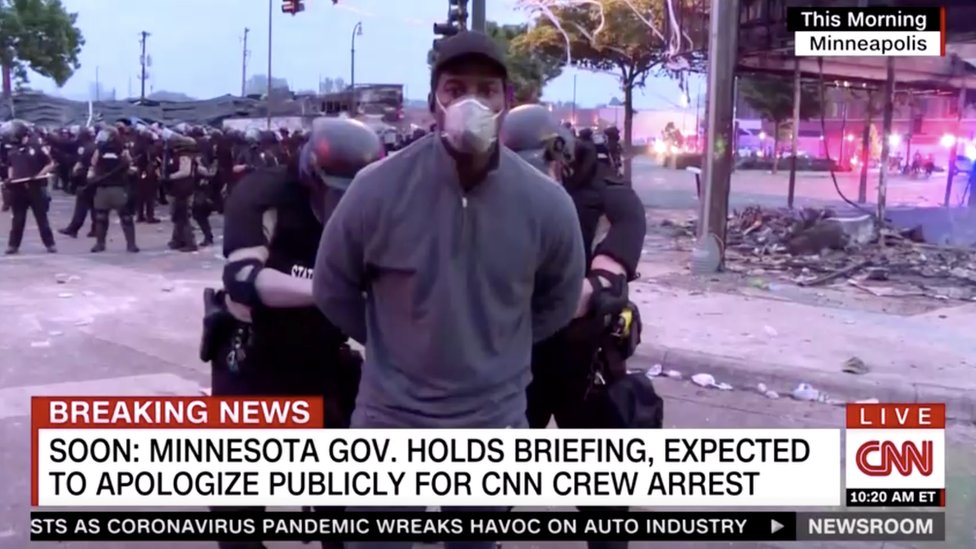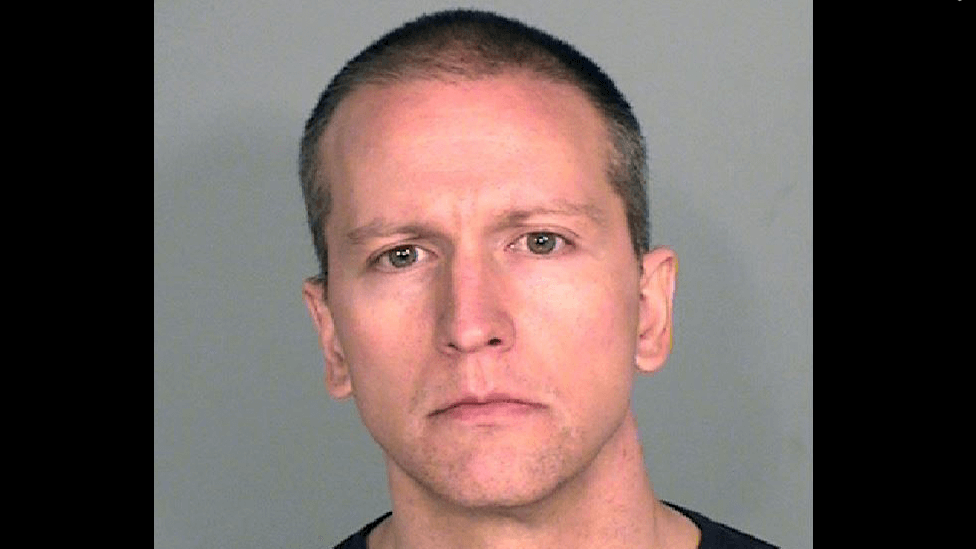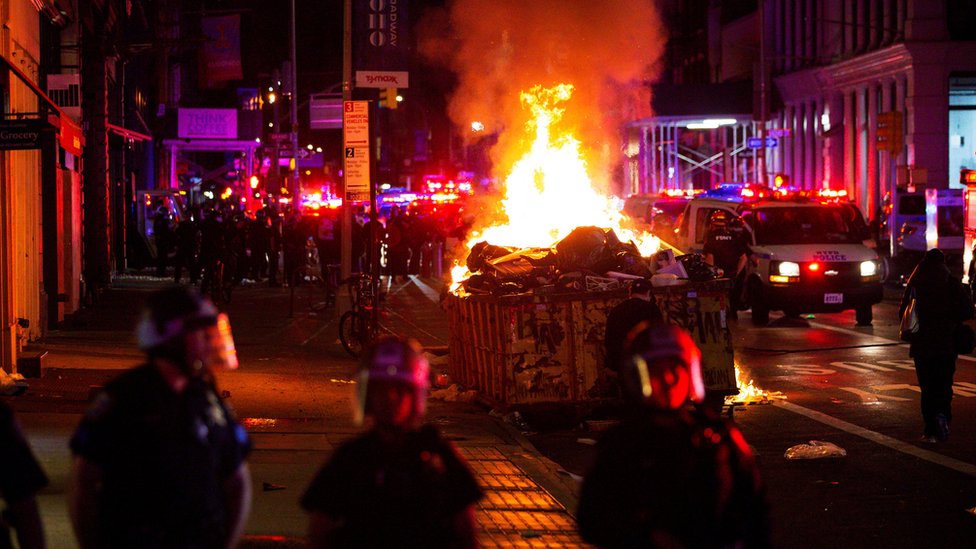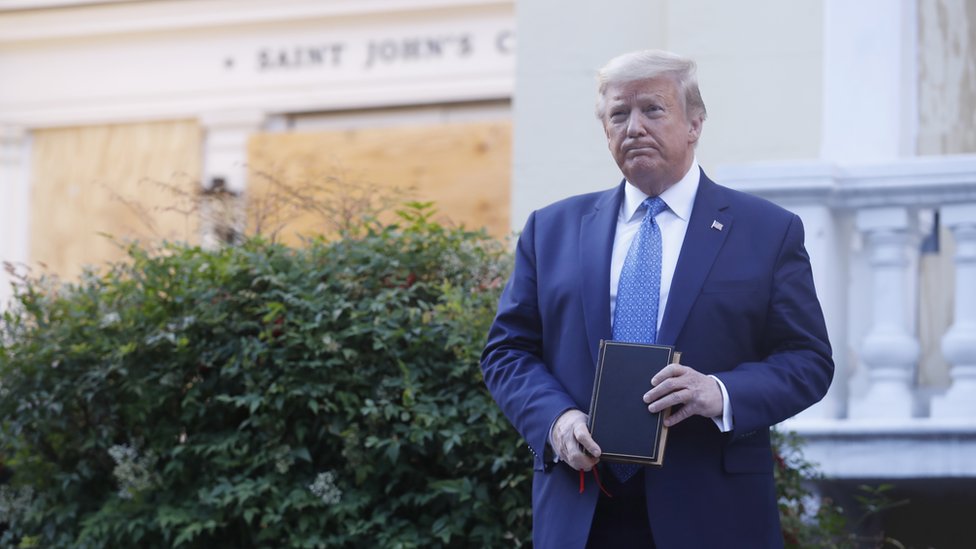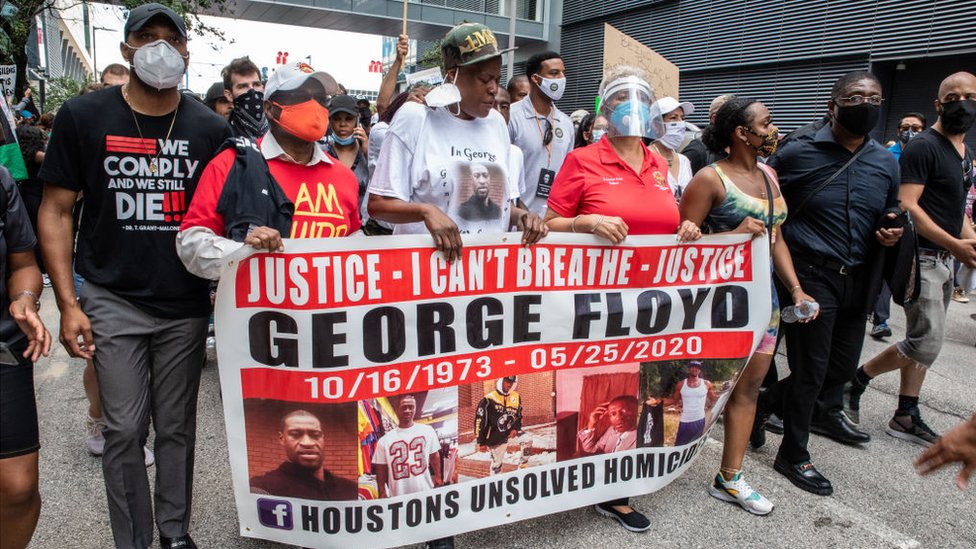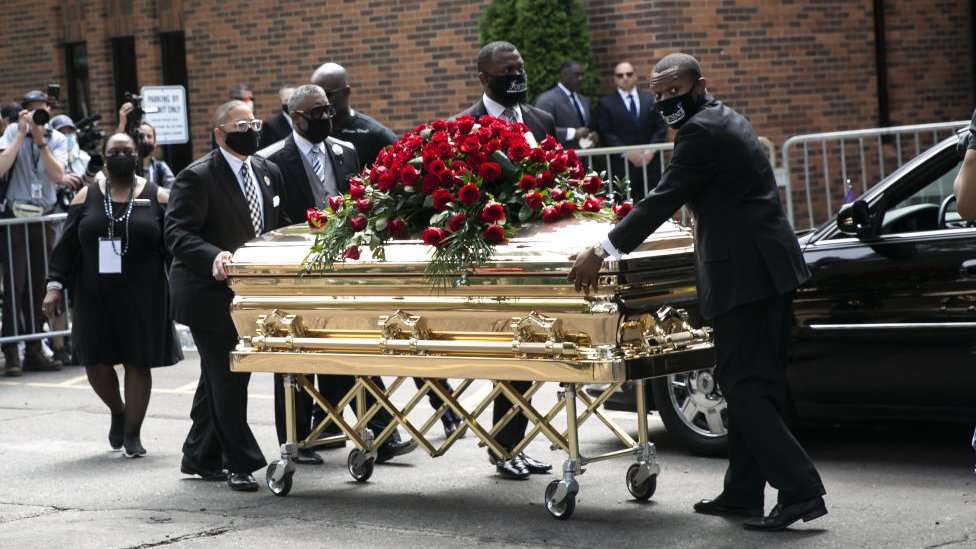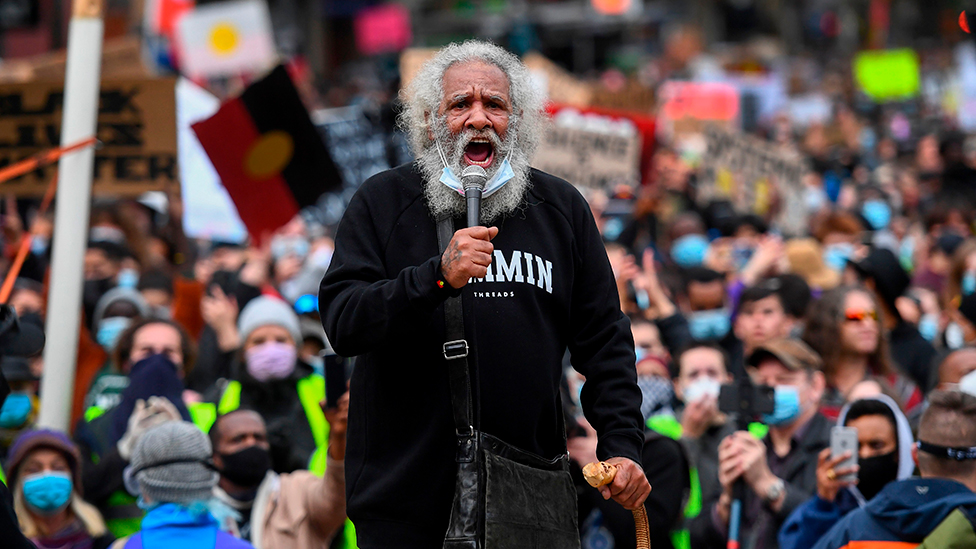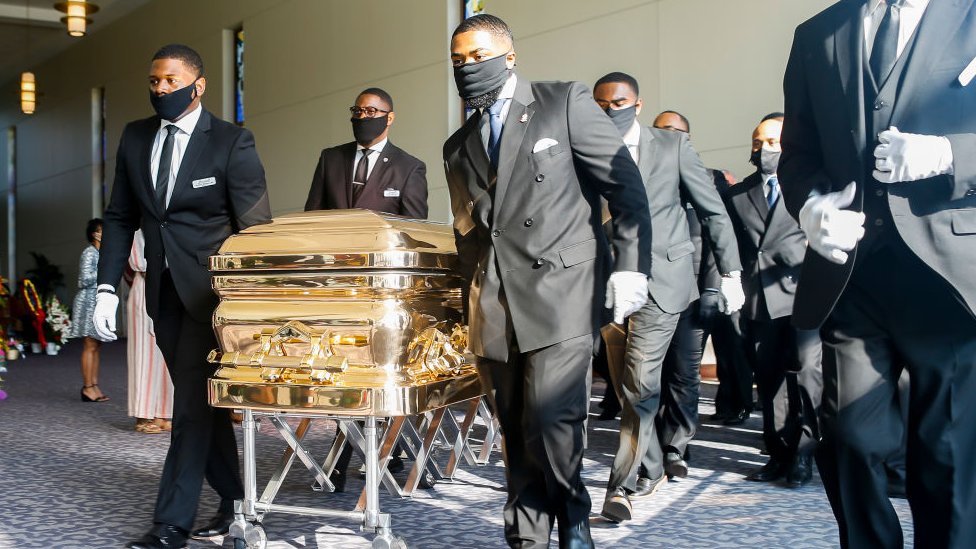George Floyd protests: Brother makes impassioned plea to UN
- Published
Philonise Floyd said his brother was "tortured and murdered"
The brother of George Floyd, whose death last month triggered mass anti-racism protests, has asked the UN to investigate the killing of black people at the hands of US police.
Philonise Floyd told the UN Human Rights Council the whole world saw how his brother was tortured and killed.
He said this proved that black lives did not matter in the US.
UN Human Rights chief Michelle Bachelet criticised the "gratuitous brutality" of Mr Floyd's death.
She said the protests were the "culmination of many generations of pain".
Ms Bachelet, a former president of Chile, also urged countries to confront the legacy of slavery and colonialism, and to make reparations.
Mr Floyd died after a white police officer in Minneapolis knelt on his neck for almost nine minutes. The killing spurred global protests led by the Black Lives Matter movement.
In a separate development on Wednesday, US Senate Republicans unveiled a proposal for police reform, which would discourage tactics like the chokehold that killed Mr Floyd but it stopped short of an outright ban.
It follows a more radical measure proposed by House Democrats earlier in the month, which would include a ban.
'Tortured and murdered'
George Floyd's brother called on UN officials to set up an independent commission to investigate the deaths of African Americans in US police custody, as well as violence against peaceful protesters.
He was speaking by video link at a debate convened by African countries at the human rights council's headquarters in Geneva.
"The way you saw my brother tortured and murdered on camera is the way black people are treated by police in America," he said.
"You in the United Nations are your brothers' and sisters' keepers in America, and you have the power to help us get justice for my brother George Floyd.
"I am asking you to help him. I am asking you to help me. I am asking you to help us black people in America."
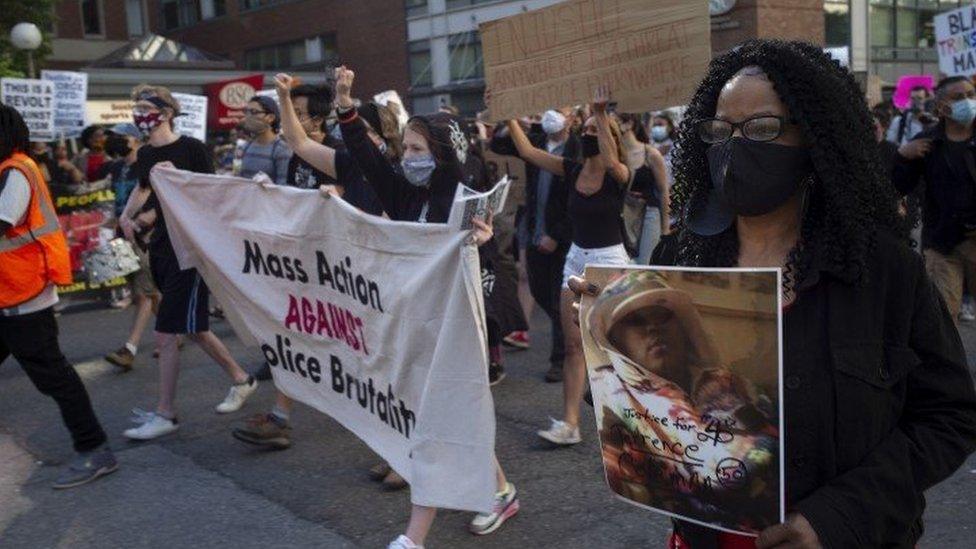
Protests have continued across the US
He also denounced police treatment of people involved in the protests which swept the US in the weeks after his brother's death.
"When people dared to raise their voice and protest for my brother they were tear-gassed, run over with police vehicles," he said.
Racism in the US: Is there a single step that can bring equality?
The BBC's Imogen Foulkes in Geneva says it is unclear whether the demand for an official investigation will get enough support to be approved.
The Trump administration pulled the US out of the council two years ago and does not attend its meetings, but our correspondent says some countries are understood to be reluctant to back an inquiry which so clearly singles out the US.

More on George Floyd's death
VIEWPOINT: Tipping point for racially divided nation
TIMELINE: Recent black deaths at hands of police
BACKGROUND: Five pieces of context to understand the protests
CRIME AND JUSTICE: How are African Americans treated?
- Published8 June 2020
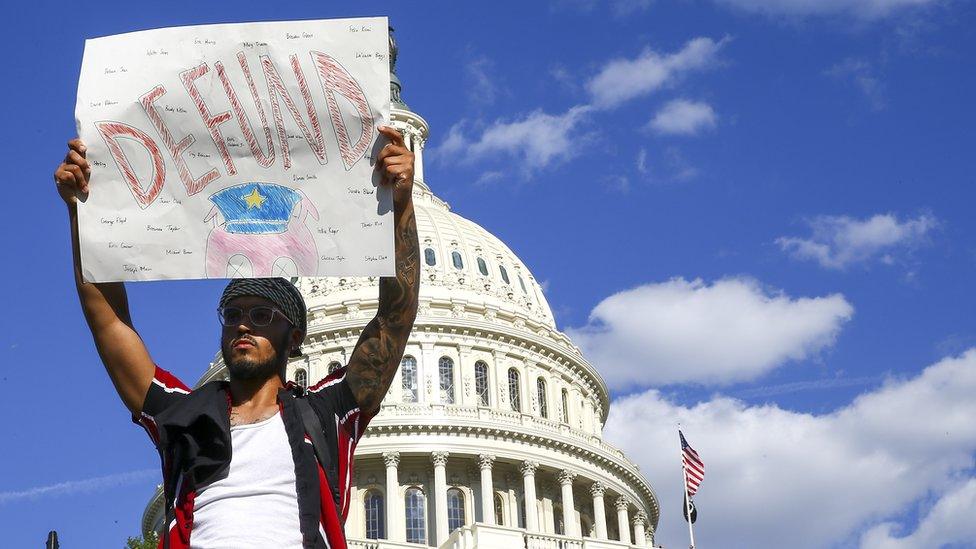
- Published9 June 2020
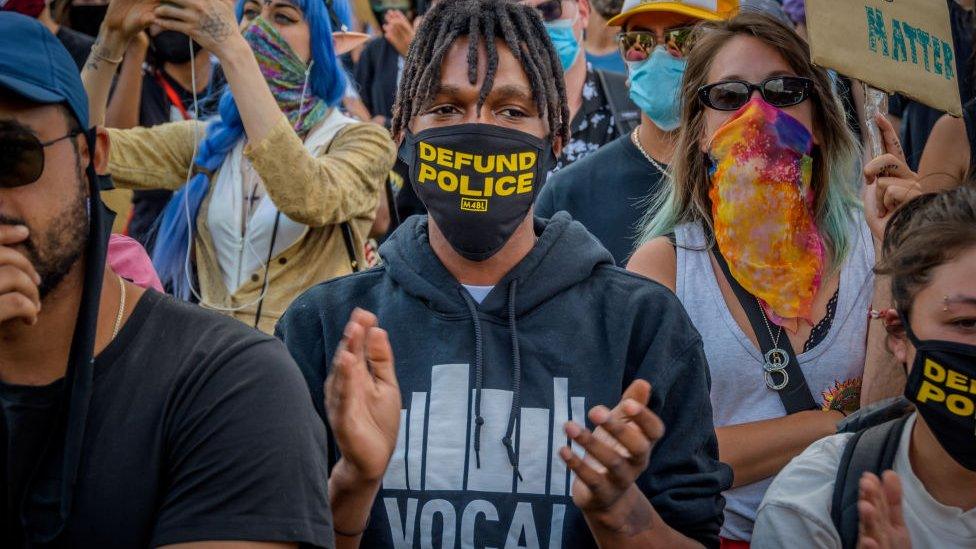
- Published17 June 2020
